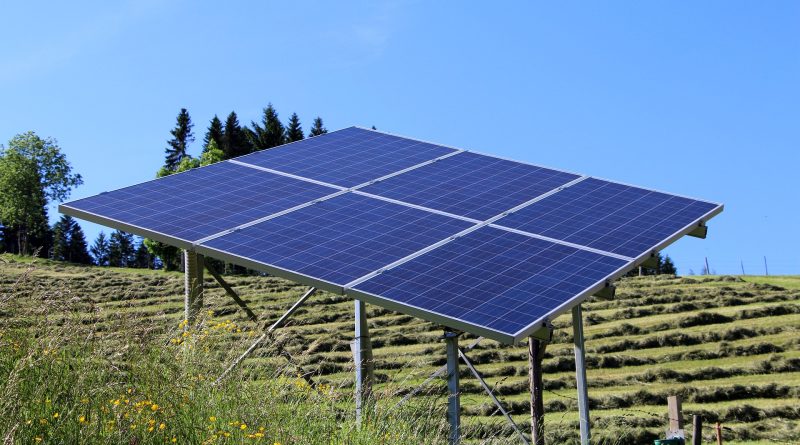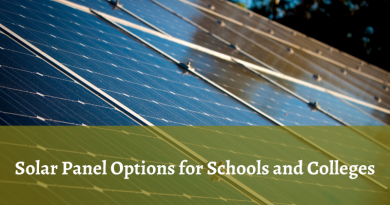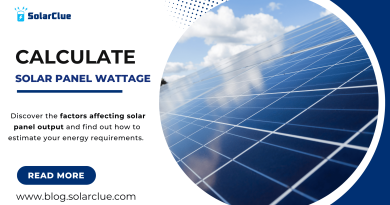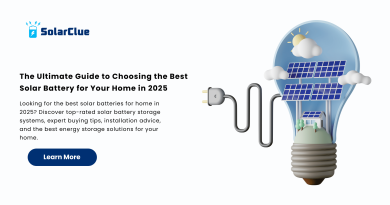Harnessing Solar Power for Your Electric Stove
Solar energy has become increasingly popular in recent years as a clean, renewable, and cost-effective source of power. Many homeowners have started harnessing the power of the sun by installing solar panels on their roofs to generate electricity. However, when it comes to high-energy-consuming appliances like electrical stoves, there is often confusion about whether solar panels can be used to power them. In this blog, we will delve into the topic and explore the feasibility of using solar panels on electrical stoves.
Table of Contents
Understanding Electrical Stoves and Solar Panels
To understand whether solar panels can power an electrical stove, we must first understand how each of these systems works. Electrical stoves draw a significant amount of power to heat up the burners and cook food. They typically require a 240-volt electrical connection and can consume large amounts of electricity, especially when used for extended periods.
On the other hand, solar panels consist of photovoltaic cells that convert sunlight into direct current (DC) electricity. This DC electricity is then converted into alternating current (AC) by an inverter, making it compatible with standard home appliances. Solar panels require a sufficient amount of sunlight to generate electricity, and the amount of power produced depends on the size of the solar array and the availability of sunlight.
Power Consumption and Solar Panel Capacity
To determine whether solar panels can power an electrical stove, we need to assess the power consumption of the stove and the capacity of the solar panels. Electrical stoves typically have wattage ratings ranging from 1000 to 5000 watts, depending on the number of burners and other features.
Solar panels have different wattage ratings based on their size and efficiency. A typical residential solar panel has a wattage rating between 250 and 400 watts. This means that a single solar panel may not be able to produce enough power to operate an electrical stove at full capacity.
To power an electrical stove solely with solar panels, multiple panels need to be wired together in a solar array to increase the overall power output. It is essential to consider the total wattage requirement of the stove and compare it to the solar panel capacity to determine the feasibility.
Battery Storage and Grid Connection
Another factor to consider when contemplating the use of solar panels on an electrical stove is the availability of battery storage or a grid connection. Solar panels generate electricity only when exposed to sunlight, which means that power generation is limited to daylight hours.
If you plan to use solar panels to power your electrical stove exclusively, you would need to store excess electricity in batteries for use during non-daylight hours. The capacity of the battery bank must be sufficient to meet the stove’s power consumption needs, taking into account the stove’s usage patterns and the amount of sunlight available.
Alternatively, some homeowners choose to remain connected to the electrical grid even with solar panels installed. This allows them to draw additional power from the grid when needed, such as during nighttime or on cloudy days when solar production is limited. Staying connected to the grid ensures a constant power supply, even if the solar panels alone cannot meet the stove’s requirements.
Evaluating the Feasibility
Evaluating the feasibility of using solar panels on your electrical stove primarily depends on several factors:
1. Solar panel capacity: Determine the total wattage requirement of your stove and compare it to the power output of your solar panels. Remember to consider the number of panels required to meet the stove’s power needs.
2. Battery storage capacity: If you plan to rely solely on solar power, make sure you have sufficient battery storage capacity to store excess power for use during non-daylight hours.
3. Grid connection: Assess the advantages of remaining connected to the grid to supplement solar power during periods of low solar production.
It is important to seek professional advice from solar panel installers or electricians who can assess your specific situation and provide guidance on the best approach to powering your electrical stove with solar panels.
Conclusion
While solar panels can generate electricity from sunlight, using them to power an electrical stove may not be a straightforward process. The high power consumption of electrical stoves and the limited capacity of individual solar panels pose challenges. Nevertheless, by evaluating the power requirements, considering battery storage or grid connections, and seeking professional advice, it is possible to harness solar energy for cooking. Solar panels can significantly reduce the reliance on fossil fuels, decrease electricity bills, and contribute to a cleaner environment. So, with careful planning, you may indeed be able to power your electrical stove with solar panels.
Transform your kitchen with clean energy! Explore solar solutions for your electric stove with SolarClue®. Cook sustainably and join the green energy movement.
Frequently Asked Questions
Yes, it’s possible to use solar-generated power for your electric stove.
You cannot connect it but you can use the power generated by solar panels.
The required setup depends on your stove’s energy consumption. Consult with SolarClue® for personalized guidance.
Battery storage systems can help during cloudy days, ensuring a continuous power supply.
Yes, choosing energy-efficient appliances enhances compatibility with solar power systems.
Battery storage or alternative power sources can ensure uninterrupted cooking, even at night.
Regular cleaning and occasional checks by professionals are essential for optimal performance.
Depending on the solar setup, you can power various kitchen appliances alongside your electric stove.
Over time, the cost savings on energy bills can make solar cooking a cost-effective and eco-friendly choice.
Explore local incentives and rebates that may support the adoption of solar-powered cooking in your region.




